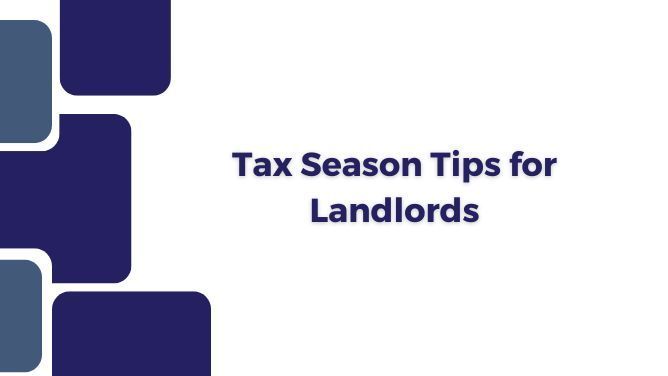California Rental Laws - An Overview of Landlord-Tenant Rights in San Francisco
Key Takeaways
- California landlord-tenant law governs nearly every aspect of the rental relationship, from disclosures to evictions.
- Landlords and tenants both have defined rights and responsibilities to ensure fairness and compliance.
- Partnering with a property management company like BanCal Properties can help landlords stay legally compliant and avoid costly mistakes.

Are you renting out a property in California? If so, you must understand the state’s landlord-tenant law. At BanCal Properties, we know that this law covers almost every aspect of the landlord-tenant relationship, including rights and responsibilities related to evictions, security deposits, and rent increases.
Violating any section of the law, even unintentionally, can result in significant penalties, including civil fines, court costs, and attorney fees. That’s why it’s important to familiarize yourself with the rules before you even welcome a tenant into your property. Alternatively, you can rely on a professional property management company to help you remain compliant.
Below is a comprehensive overview of landlord-tenant law in California, including the California Tenant Protection Act.
Required Landlord Disclosures in California
Like many other states, California law requires landlords to provide certain disclosures to tenants before they move in as a part of the tenant protections. These include:
- Lead-based paint concentrations.
- Information on how to report bed bug infestations in the rental property.
- Documentation of any known mold in the unit.
- Utility fee-sharing formula.
- Asbestos use if the property was built before 1979.
- Contamination of the unit by methamphetamine or fentanyl.
- Residential tenant’s right to access the sex offender registry.
- Any planned demolition that may affect the tenant.
- Any death in the unit within the past three years, except those related to HIV or AIDS.
- Records of recent pesticide use in the rental property.
- Whether the property is in a flood zone.
- The property’s smoking policy, if one exists.
California Tenants’ Rights and Responsibilities
California tenants are entitled to:
- Receive required disclosures before moving in.
- Terminate the lease or rental agreement under legitimate circumstances or after meeting the lease terms.
- Live in a habitable unit.
- Receive notice before landlord entry of the rental property.
- Get a security deposit refund, minus allowable deductions.
- Be treated fairly under California’s Fair Housing Act.
- Receive proper notice before rent increases but not illegally withhold rent.
- Be evicted only through the proper legal process.

California tenant responsibilities under California law include:
- Maintaining the rental unit as outlined in the lease.
- Keeping fixtures clean and sanitary.
- Using the property for its intended purpose.
- Making minor repairs to the rental unit if required by the lease.
- Vacating the property at the end of the lease unless it is renewed.
- Avoiding disturbances to other tenants.
- Allowing the California landlord access when permitted by local laws.
- Giving notice before ending a periodic tenancy.
- To pay rent on time, every month according to the lease agreement.
Landlords’ Rights and Responsibilities in California
Under Cal. Civ. Code 1940–1954.06, landlords have the right to:
- Access the property for inspections, repairs, and maintenance.
- Evict tenants for lease violations.
- Deny applicants who do not meet screening criteria.
- Choose not to renew a lease or rental agreement for the rental unit for any lawful reason.
- Withhold part of a security deposit for damages or unpaid rent.
- Raise the monthly rent in accordance with local rent control laws, all while following the local rent control ordinance.
- End a lease agreement with proper notice while making sure to pay rent until the lease term is done.
- Draft and enforce lease terms.

Landlord responsibilities include:
- Maintaining a habitable property at all times.
- Completing necessary repairs in a timely manner.
- Enforcing lease terms fairly.
- Following California anti-discrimination laws.
- Complying with state rent control requirements.
- Providing notice before entering the rental unit.
- Giving proper notice before terminating periodic tenancies.
- Following the correct legal eviction process.
- Abiding by all lease terms.
An Overview of California Landlord-Tenant Laws
California’s landlord-tenant laws are designed to balance the rights and responsibilities of both parties. They provide clear guidelines for everything from habitability requirements to eviction procedures, ensuring that rental relationships remain fair and legally compliant.
Habitability Requirements
A landlord cannot legally rent out a property that fails to meet minimum habitability standards. Issues like mold, pests, or faulty wiring must be corrected before a tenant moves in. Once notified, landlords must make repairs within 30 days of receiving written notice.
Tenant Evictions
Evictions must follow the legal process. A landlord must obtain a court order, and only a sheriff can carry out the eviction if needed. If a California landlord fails to do so, it can spell trouble.

Illegal actions, such as changing locks or removing a tenant’s belongings, are strictly prohibited.
Security Deposits in California
California sets clear rules for security deposits:
- The maximum deposit is equal to one month’s rent.
- Security deposits must be returned within 21 days of move-out.
- Deductions must be reasonable and documented.
Lease Termination
Either party can end a periodic tenancy with proper notice. For instance, tenants must provide 30 days’ notice to end a
month-to-month lease. Fixed-term leases can only be broken under specific conditions, such as active military duty or uninhabitable living conditions.
The Bottom Line
Understanding California landlord-tenant law is essential to protecting both landlords and tenants. By staying informed, you can avoid costly disputes and maintain a professional rental relationship.
If you need expert assistance managing your Bay Area residential rental properties, BanCal Properties is here to help. Contact us today to learn more about our professional property management services.
Disclaimer: This article is for informational purposes only and does not constitute legal advice. For specific legal concerns, consult a qualified attorney.








